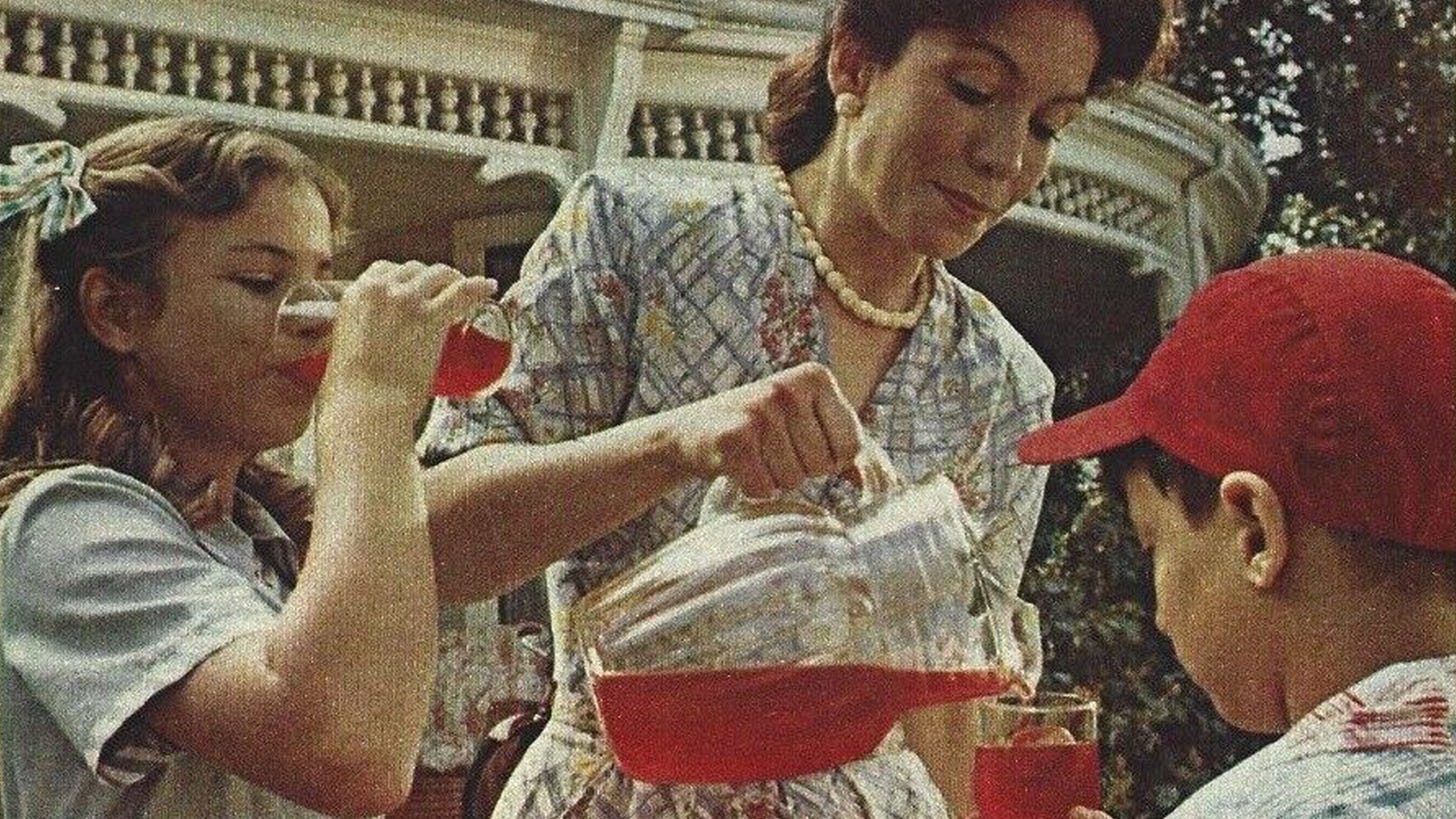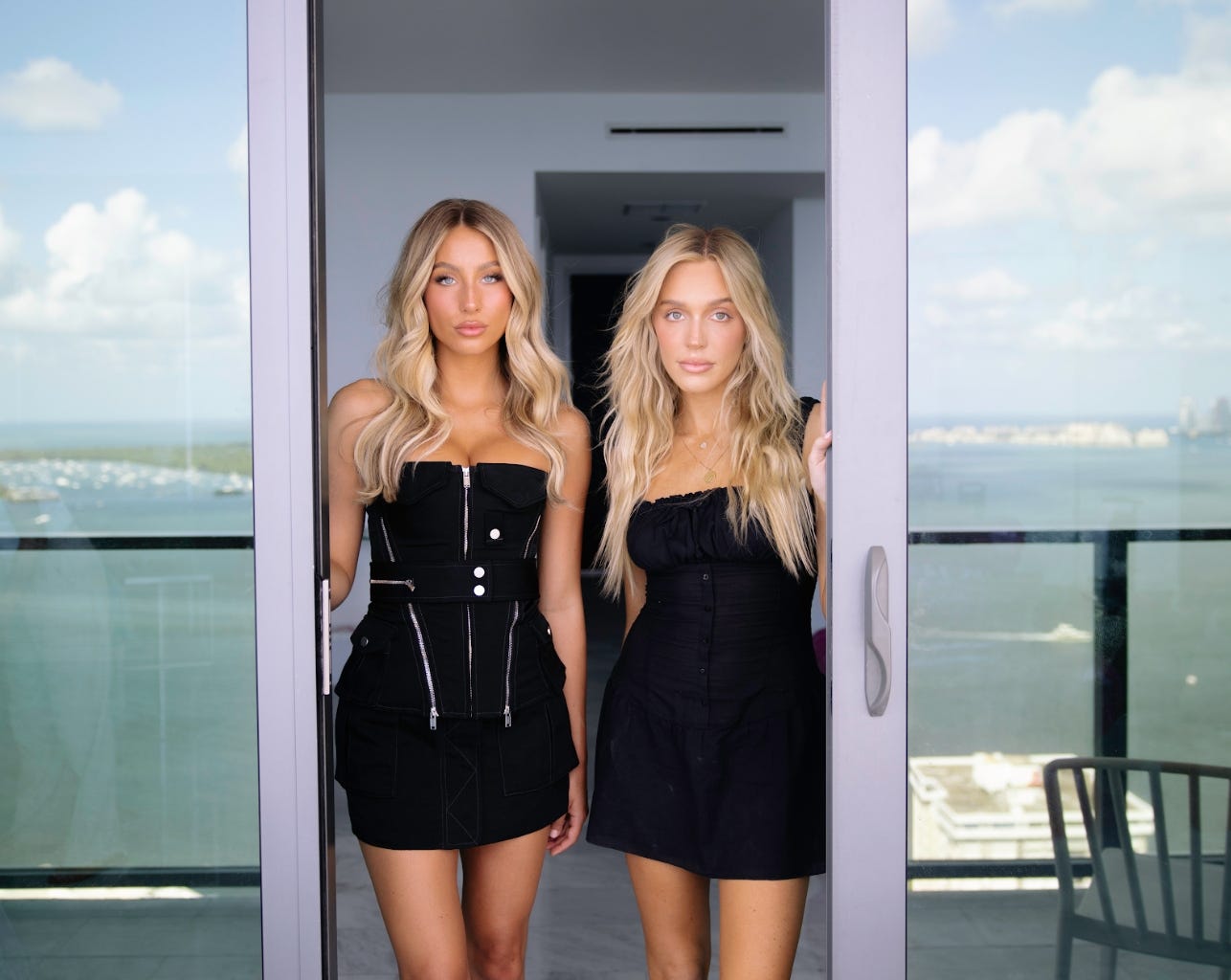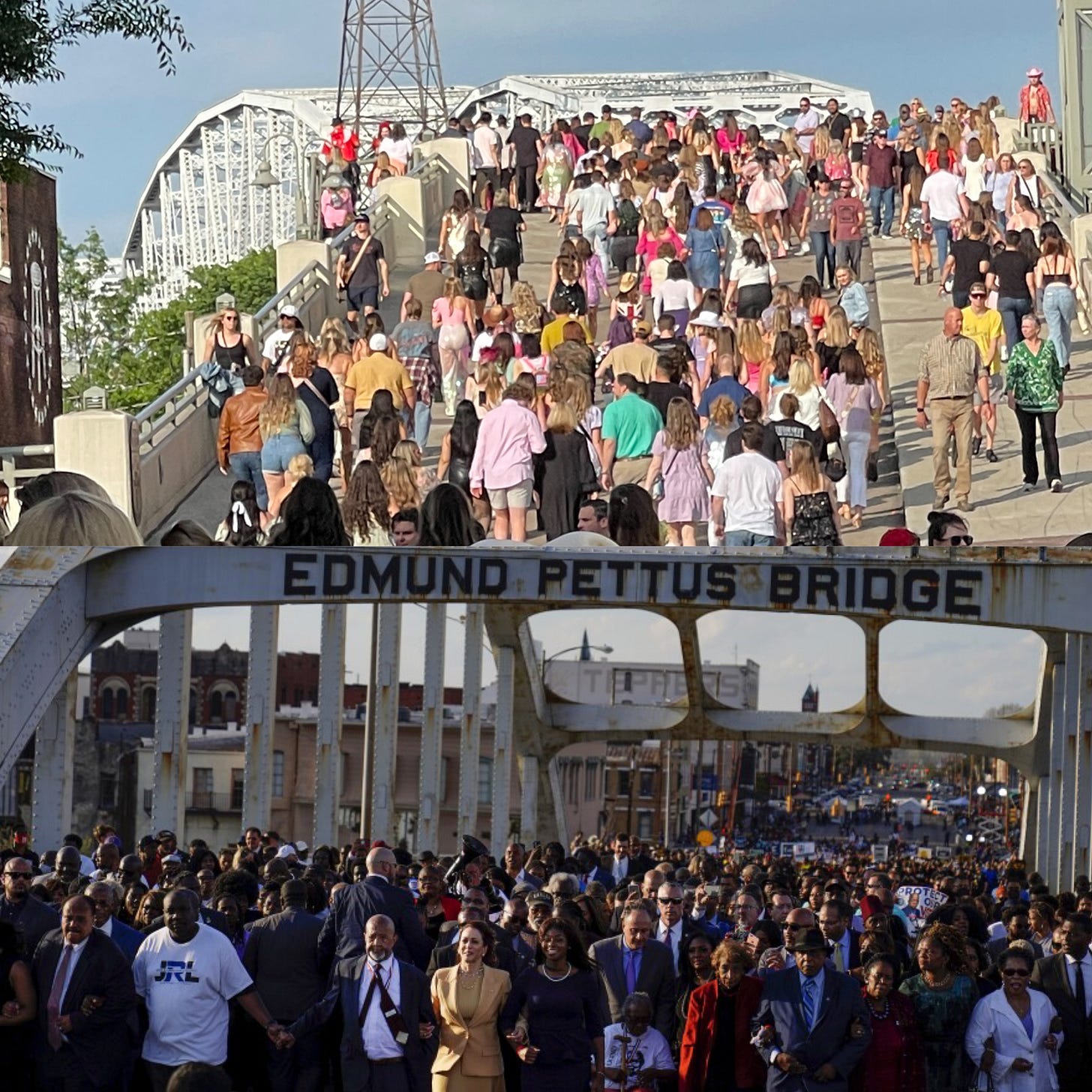Alex & Dia Drink the Kool-Aid: Pt. 2
On Taylor Swift, corporate success, crypto & more
Welcome to the second installment of Alex & Dia Drink the Kool-Aid: a three-part series exploring the different cultural pillars we’ve indulged, and how they’ve impacted our identities. We assign each a toxicity rating on a scale of 1-10—think of 1 as trying the Ice Spice × Dunkin’ Donuts drink collab, and 10 being FaceTune.
If you missed part 1, you can read it here. And if you love it, subscribe to get the final installment sent directly to your inbox next Friday:
Neoliberalism
Toxicity Rating: 10/10 (Alex)
Before COVID-19 sent us inside for months, my Black ass was walking up to white people’s houses and asking—more like urging—them to vote for Elizabeth Warren. I had a “Warren 2020” pin on and everything.
I became more politically vocal in 2016 as Barack Obama left the White House and Hilary Clinton and Donald Trump competed to take his place. I never questioned whether I’d be anything other than a Democrat. I learned my political beliefs from spending time with older family members. George W. Bush is evil, Bill Clinton is good, and the United States isn’t ready for a Black president. That is, until we were.
Although my family didn’t always agree on who to vote for while I was growing up, we all believed in Barack. He was one of us. And he was married to one of us. The U.S. was finally living up to its creed that all men are created equal. Martin Luther King Jr.’s dream had become a reality. That is, until it wasn’t.
In the summer of 2020, just like the summers and every other time before it, police killed Black people. We watched our own die and demanded justice. Instead, Democrat and Republican politicians said the solution is more police. They grieved the destruction of property more than our lives. The Black politicians, the gay politicians, and the ones who got popular telling us how much they love Black and gay people chose empty gestures instead of giving up their power.
While my wife and I were packing to move, I threw out my Elizabeth Warren pin—and my hope in neoliberalism along with it. No one party has a monopoly on oppression. The Democrat and Republican parties are steeped in and reliant on imperialism, white supremacy, capitalism, and patriarchy. I prefer to place my hope in our ability to care for one another and keep us safe. That’s worth fighting for.
Christian Celebrities
Toxicity Rating: 7/10 (Alex)
“Oh, the overwhelming, never-ending, reckless love of God,” emotionally sang Justin Bieber in his car. Posted as part of a series of Instagram Stories, I immediately saved this video, posted it to my own account, and replayed it repeatedly throughout the day.
Back when I was a God guy, I lived for these moments. As Americans, we already worship celebrities. But when those celebrities publicly worship God, they become Christian mascots. They’re like God-fluencers. It became easier for me to sell Jesus when there was a recognizable face representing him.
My heart would beat faster when athletes thanked God in their championship speeches. I thought it was the coolest thing that Carl Lentz baptized Justin Bieber in Tyson Chandler’s bathtub—or that Jerry Lorenzo named Fear of God after Oswald Chambers’ devotional, My Utmost for His Highest. They were giving Jesus a bigger platform as if the King of Kings wasn’t enough.
Megachurches boasted their proximity to these celebrities while being loudly silent about their queerphobic and sexist church policies. It leaves me wondering how many of these celebrities are willful participants in their church’s harm or if they’re being deceived too.
Having a Bieber or Kardashian-Jenner in your congregation can get more people in seats. But whether they realize it or not, in most cases, these celebrities are being used to sell newcomers a bill of goods.
I haven’t been to church in years. But if we get that Justin Bieber Christian album with an ambient remix of “Peaches,” I’m listening. I’m still blocking “Jesus Is King” on Spotify, though. Y’all can keep that.
The Blondes
Toxicity Rating: 3/10 (Dia)
One thing about me is I am a GIRL’S GIRL. I love women. I have 200 muses and counting. A chunk of them are basic ass white American blonde girls. I don’t know. I’m a former cheerleader. These are the girls I wished I looked like growing up so there’s this unhealed aspirational component. All the matching Alo Yoga sets I never bought, the sororities I never rushed… shit haunts me.
Truth be told, I don’t actually got that dog in me. I got that Bratz doll in Uggs and a Juicy velour tracksuit in me. She has a complicated Starbucks order and absolutely loses it over a bubbly, blonde party girl. I want them to contour my face and force tequila shots down my throat to shitty Drake remixes. Alix Earle. Alex Cooper. They may represent the very worst beauty standards, have alcohol problems, and teach girls how to give h**d for a living, but you can’t always help who you love.
Crypto
Toxicity Rating: 10/10 (Dia)
During the great bull run of 2021, I was convinced that crypto was the key to a.) getting rich, and b.) personal sovereignty. Ok, I’m not sure I was ever really convinced of those things, but I was convinced that I wanted to be convinced. Everyone looked to be having so much fun stacking cash off a meme coin, and I wanted in on the hype.
I consumed countless hours of podcasts and articles. Sought guidance from my crypto millionaire ex, who must have felt bad for those years of garbage treatment because he was a fountain of advice. And ultimately, I spent thousands of dollars to watch my portfolio shrivel up, only to continue investing here and there to this day.
Crypto is dangerous because it opens your mind to this nebulous world that feels progressive and romantic and free. But it is a volatile non-reality full of flaws and dumb luck. Maybe someday, “the blockchain” will mean something to the average person. But for now, best to get yourself a good, old-fashioned financial advisor and let them manage your investments. It’s still $LINK to the moon, bro.
Taylor Swift
Toxicity Rating: 4/10 (Alex & Dia)
Dia: I was a freshman in high school when “Tim McGraw” broke my country heart—napkin-scrawled poetry for the adolescent longing I couldn’t make sense of. Here was this curly blonde angel with a guitar: a fellow Pennsylvania girl who liked boys with trucks, hoped they might remember her little black dress or those old faded blue jeans. Taylor was a good, clean girl and I so badly wanted to be just that.
If you don’t know your place in the world, life will teach you quickly. I was from the wrong side of the tracks. I say this in the most Pretty in Pink way in that, like Andie, I used to have people drop me off down the street so they wouldn’t see where I lived. Raised in a dive bar, always smelled like smoke. Namesake of an island man who came to America at 41 to work and die in the coal mines. I learned to love the burn of whiskey earlier than I should have, and so soon, I recognized in Taylor Swift a sort of mocktail persona: saccharine, phony. I wanted to black out in the woods to the percussive spell of “Moby Dick”; I wrote “RIP BONZO” on the back of my binder. It was “fuck this bitch” from then on.
Taylor Swift haunted me over the years, always following me around with her shapeshifting pop stardom. She was a bleached and cropped rebel out to claim her reputation. A folk songstress of enchanted woods. And as I matured and softened, less bound to the trajectory of my upbringing, I started seeing in her everything I’d wished I could accept about myself: someone desperate to be loved; someone curious and eager to try it all on, to be the hero and the villain in the same breath. All that feminine dumbassery I couldn’t, and still can’t, help but love.
It wasn’t until this year with the Eras tour craziness, though, that my relationship with Taylor Swift got more mainstream and thus, concerning (lol). When the tour was announced and tickets went on presale, I tried to get some for the hell of it. Didn’t care if I went, just wanted to experience the flurry! But when the tour actually began and everyone in America was citing it as “the best night of their life,” when every outfit change and dance break was shared on TikTok with startling clarity (Was everyone front row? Did everyone bring their professional grade 4K HD whateverthefuck video cameras?), I literally bonged the kool-aid. I wrote a whole piece about waiting in the ticket queue for 15 hours. Lost sleep. Lost dignity. It showed me just how far I was willing to go to live out some sequined, girlish fantasy of holding hands with my sisters, belting out offerings to the pop gods.
Every bajillionaire celebrity is cultural cancer in one way or another. Taylor Swift probably more than most if you really dig deep. But her fandom offers the kind of precious unity I used to get from, say, stanning the Olsen twin movies, or shopping for Bath & Body Works products. I hear healing your inner child is all the rage.
Alex: When I went to the Eras Tour in Nashville, you had to cross this bridge to get to Nissan Stadium. Immediately upon seeing all the white girls walking with their reluctant boyfriends, husbands, and dads, I started laughing because images popped into my head of protesters and civil rights leaders marching across the Edmund Pettus Bridge in Selma, Alabama. Movements toward freedom—albeit very different meanings of the word.
Leading up to the concert, my barber asked me what brought me back to the shop so soon from my last visit. “It’s my birthday weekend,” I replied, “And I’m going to see Taylor Swift.” Surprised, he asked me if I was a Taylor Swift fan—a Swiftie. For both him and you, the reader, the short answer is yes. The longer, more complicated response is that Taylor Swift is the force I tried fighting for a while.
When Kanye took the mic from Swift at the VMAs to proclaim Beyoncé should’ve won, I wanted you to know he was right. But when “You Belong With Me” played on the radio, I sang along to every word. I loved Red. I didn’t listen to 1989 and definitely didn’t press play on Reputation. That snake. But as much as I tried to be on the side of hating “Look What You Made Me Do,” the beat was infectious. The hook was catchier than I wanted to admit.
I thought Taylor Swift was fake, that the shocked expression she had whenever she won an award was an act. And it very well might have been. Earlier this year, I wrote an essay about the innocence afforded to Swift by others and how she also helped build that persona for herself. But the flipside of Swift’s music is that it played a part in helping me shake off the sense I could only like one type of music and needed to have an overly masculine music taste. I had permission to sing “All Too Well” at the top of my lungs. Without a care in the world, I could dance madly to “22.” I too could have a sad girl era while listening to Folklore with melancholy.
When Midnights dropped, I found myself backsliding toward not wanting to like it. “This Target-ass album,” I muttered under my breath. But when we crossed that bridge to Nissan Stadium, all my inhibitions disappeared. Songs that made me roll my eyes were transformed in the face of sequins and rainbows. We found freedom, or at least a shadow of it. The whole place really did shimmer, leaving many of us dying to bottle that feeling in friendship bracelets and long merch lines. I shook my ass in a suit. No more bad blood.
Corporate Success
Toxicity Rating: 6/10 (Dia) & 9/10 (Alex)
Dia: In most areas of my life, I am a quitter. A corner-cutter. An easy-way-outer. I run races and give up midway through. I publish writing prematurely, knowing there are sentences to rework, concepts to flesh out more thoroughly.
So often, I contemplate this notion of giving things “your all.” I look at the greats in any given field and imagine the work it takes to reach such heights—the way Beyonce leaves it all on the stage, or Kipchoge defies the laws of science in the marathon. It feels fictional, like achievement lore. Because when I think really, really hard about my various pursuits, I cannot recall even once feeling like I “finished the job.”
… except at work.
At my incredibly corporate 9-5, I am a machine. I forget nothing. I am precise. I do the job until it gets done, even if that requires working late or starting early. And the high I get from the rare breadcrumb of praise is delicious.
My therapist and I talk a lot about what it’d look like to go all in on writing—my art, my passion. Not being totally unemployed because who the hell will pay my bills, but perhaps finding a lower paying, less demanding job that allows me the freedom to write more. The thought of “downgrading” crushed me. I realized my identity is now inextricable from succeeding at a prestigious company.
As a craft, writing is unreliable, full of uncertainty. But every morning Monday-Thursday, I know that I can swipe my badge, take the elevator to the 11th floor, and give it my all. Corporate life sucks up all your time and energy, so you have an excuse not to do the hard work of creating art. It’s the ultimate escapism, and it’s in your control.
As the only person in my family with a college degree, I’ve always felt intense pressure to do well in conventional ways that will make my parents proud. To free myself from inherited financial anxiety, and succeed somewhere that will provide me the stability I never had. Corporate success checks all those boxes. It preys on your insecurities and sells you the cheap dream of six figures and middle management.
Alex: I relate with Dia in wanting to make my parents proud. Both my mom and dad worked in corporate (one still does, and the other helps college students get corporate internships). Wanting me to never be in need, they encouraged me to do everything I could to position myself to get a well-paying job. As Black professionals, they also saw how hard they had to work to get what their white counterparts had—and sometimes how you might still come up short.
I wrote more about it here, but I internalized a lot of these messages. I saw achievement as my path toward acceptance. And for the most part, I did all the right things. I kept good grades and participated in extracurricular activities throughout the year. I was an honors student in both high school and college and spent the summers after my sophomore and junior years doing internships with reputable organizations. I even completed mock interviews and knew what was needed for my resume and cover letters.
I wasn’t just pursuing a job; I wanted my dream job. The kind of role that would impress my friends and family and align perfectly with my values. The funny thing is I got dream jobs only to learn I loved what my life outside of work afforded me a lot more. “Work will never love us back,” wrote Sarah Jaffe in her book of a similar title. “But other people will.”
Winning at work is typically very different from winning at life—one often coming at the expense of the other. Now, I have a better sense of what I want from work. I don’t need my 9-to-5 to fulfill my dreams; I just want to minimize how much it keeps me from pursuing them.
Read Alex & Dia Drink the Kool-Aid:







Loving this series.
corporate success as escapism is really making me think about my life choices! great work ya'll!